Guilty Pleasure Reads
What UVA’s literary set takes to the beach
Classes have ended and Grounds have cleared out; it’s time for breezy summer reading. We asked UVA faculty and staff members who spend their days surrounded by books what they like to read when they take a break from academia.
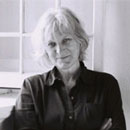
Sydney Blair:
Easy Riders, Raging Bulls: How the Sex-Drugs-And-Rock ’N’ Roll Generation Saved Hollywood, by Peter Biskind. A brilliant, splashy page-turner about the filmmaking scene in Hollywood in the 1970s that chronicles the high-minded artfulness—as well as the pyrotechnic, off-stage, low-minded recklessness—of the enfants terribles of the time. Delectable added attraction as the waves roll in, waves roll out.
Sydney Blair is an associate professor of fiction in the UVA creative writing program. She is the author of the novel Buffalo.

John Casey:
Guilty pleasure: those books on the St. John’s Great Books list that I haven’t read and feel guilty about. Secret shame: Show Me the Funny (by Peter Desberg and Jeffrey Davis), a book by and about Hollywood sit-com writers; not the ones Paul Cantor rightly admires but the ones that remind me of my few dealings with Hollywood.
John Casey is a professor of fiction in the UVA creative writing program. His most recent novel is Compass Rose.

Stephen Cushman:
A recent guilty pleasure is Thomas Wolfe’s first novel, Look Homeward, Angel: A Story of the Buried Life (1929). Whence the guilt? This extravagantly lyrical giant has never appeared on any course syllabus I’ve seen since I entered college in the 1970s, or in anybody’s version of any canon since I began teaching at UVA in 1982. It, and its author, have slipped completely from memory, both popular and academic, so much so that when we hear or read “Tom Wolfe” now, we think of someone else altogether. Look Homeward, Angel is so unfashionable it’s exotic.
Stephen Cushman is a professor in UVA’s Department of English. His most recent book is Belligerent Muse: Five Northern Writers and How They Shaped Our Understanding of the Civil War.
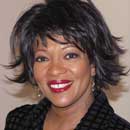
Rita Dove:
My guilty pleasure? A juicy crime novel—not blood-and-guts-slash-’em-up, but the kind with a brooding police detective pursuing the murderer through the hidden societies of an evocative city. Donna Leon is one of my favorite crime novelists; I've followed her Venetian Commissario Guido Brunetti through 23 novels, and when I spent a month doing literary research in Venice last year, Donna Leon had already provided me with a certain familiarity. So, of course, my first light reading fare this summer, away from literary heavyweights, will be her latest Brunetti adventure, numero 24, Falling in Love, which was just published in April. Not only does it again have Venice as its backdrop, but also, like the very first novel in the series, Death at La Fenice from 1992, it deals with one of my favorite venues and musical pleasures, opera.
Rita Dove is a professor of poetry in UVA’s creative writing program. Her most recent book of poems is Sonata Mulattica.

Ivey Glendon:
I can share that earlier this year I read and enjoyed Katherine Heiny’s Single, Carefree, Mellow: Stories. The women in this collection of stories are anything but what the title suggests—in fact, most of them are unfaithful in their relationships and are rather obsessed with the petty details of everyday life. The twist is that Heiny somehow makes these women (and their stories) wildly funny. It’s the perfect guilty pleasure beach read!
Ivey Glendon (Col ’07) is a metadata librarian at the University of Virginia Library.
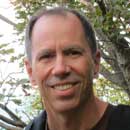
Jeb Livingood:
Mine would be Dune by Frank Herbert. I reread it every few years, usually in the heat of summer. Even though Herbert’s writing gets clumsy at times, I don’t think the scope and imagination of this science fiction novel is matched by many books, except maybe Tolkein’s The Lord of the Rings. In Dune, after the assassination his father, we follow a young Paul Atreides into the deep desert of planet Arrakis, we ride along with him on enormous sandworms, and by the end the novel, we root for the violent mujahideen Paul leads as a new messiah. Herbert published Dune in 1965, I believe modeling the desert fighters of Arrakis after the British experience in Afghanistan. But reading Dune in a post-9/11 world has its own delights—and eeriness. It’s a 50-year-old science fiction book that has held up remarkably well.
Jeb Livingood teaches fiction in UVA’s creative writing program and also serves as the faculty advisor for the UVA literary magazine Meridian.
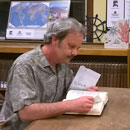
Doug Moseley:
I am planning to read at least one of the late English author Winston Graham’s Poldark series of historical novels, set in 18th-century Cornwall, in order to get psyched for the June broadcast on PBS of the new Poldark TV series. I watched the original Poldark drama series on PBS as a child in the 1970s. High drama along the beaches of Cornwall, England, while I am relaxing at Ocean City …
Doug Moseley is the night manager of Alderman Library.
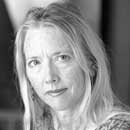
Lisa Russ Spaar:
I’m probably the last person in town to do so, but I’m going to wade at last into the specular, quotidian, notorious realm of Karl Ove Knausgaard’s My Struggle. Or I may decide to reread at least a bit of the delicious tome that, in part, inspired it: Proust’s Remembrance of Things Past, which I first savored in the summer of 1978.
Lisa Russ Spaar is a poetry professor in UVA’s creative writing program. Her most recent book of poems is Vanitas, Rough.

Roy Cadoff:
A beach week or “no shoes” week read for me requires a tome whose pages are filled with characters and places I know next to nothing about. I have been saving Shantaram, by Gregory Roberts, since December. An escaped prisoner and heroin addict wanders and grifts through the Mumbai underworld.
Roy Cadoff is the incoming general books manager of the UVA Bookstore.
Wayne Terwilliger:
In recent years the beach for me has come to mean a covered porch, waves to stare at (and not so much swim in) and the leisure to read long, maybe challenging, books. Will Self’s Umbrella was a highlight of my last beach vacation. After 30 years at the UVA Bookstore—26 (I think) as general books manager and buyer—I’m retiring very soon into what I choose to envision as one long beach getaway. Therefore I am lining up the long—maybe challenging?—books: Will Self’s Shark and The Song of the Shank by new faculty member Jeffrey Allen top the pile.
Wayne Terwilliger is the general books manager of the UVA Bookstore.
